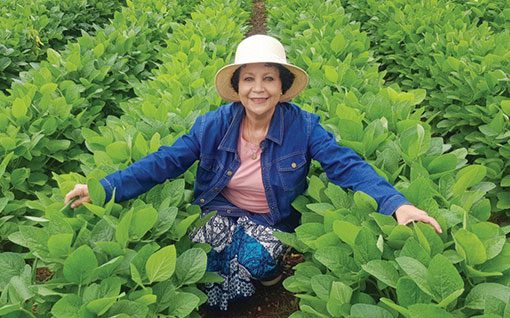Adelaide Ruiters

Nominee's Province:
Western Cape
Project Name/Description:
Vision, tenacity and hard work are key character traits of entrepreneurs. And it is easy to spot these traits in Adelaide Ruiters. Ruiters is a serial entrepreneur with a knack for venturing into uncharted terrain for women entrepreneurs. She is driven by her determination to succeed against all odds. Her latest venture in the Western Cape is breathtaking, considering both the scale and magnitude of the project. A significant shareholder in Adelaide Ruiters Mining and Exploration Pty Ltd (ARME) – which is a 51% South African black women-owned mining and exploration company – Ruiters is carving a big name for herself in mining exploration – dominated by established big players. “Mining exploration is capital intensive and it is difficult for start-ups to compete against the established guard. But our experience tells us that we have to start from somewhere and build our way up to the top,” says Ruiters. In an industry in which savvy clients prefer to deal with the established guard, Ruiters advises that credibility is key. “You obviously start by building up a portfolio of evidence through the small projects you undertake until you amass the experience and expertise required to take on bigger projects.” In a ground-breaking project, ARME is currently exploring for mining and beneficiation of sedimentary phosphates in the Saldanha Bay area, Western Cape. Her mining right for the Zandheuvel phosphate mine was recently granted. It is conducting a bankable feasibility study for its Zandheuvel Sedimentary Phosphate Mine and Beneficiation plant on the farms Zandheuvel 126, Witteklip 123 Portion 61 and Yzervarkensrug 127 Portion 2 in Saldanha Bay. The proposed mining site is located adjacent to Lafarge and opposite Mittal Steel Saldanha, 150km from Cape Town in the Western Cape, and 5km from the Port of Saldanha. IDC funding support is helping the company conduct the feasibility study to determine the economic viability to produce a direct application organic fertiliser as a cheaper environmentally friendly fertiliser option to South African farmers, including other farmers spread across the SADC region. Agriculture trials were recently conducted to prove the efficiency of the Zandheuvel phosphate concentrate to be marketed as Zandphos, in both the organic and chemical commercial environment. Successful soya beans agriculture trials were conducted, and currently wheat trials are being conducted. Of significant benefit, the development of the Zandheuvel phosphates conforms with the IDC’s chemicals value chain goal of developing primary fertiliser molecular inputs, one of which is phosphate. This allows for efficient component inclusion into the local fertiliser blend. This strategy is aimed at reducing input costs and increasing security of supply, including food security. “This project couldn’t have come at a better time than now when you factor in the rising demand for fertiliser not only in South Africa but the southern African region as whole. The conflict in Eastern Europe is certain to push up demand. We are grateful for the partnership and funding support from the IDC over the years,” says Ruiters. Even though the project has yet to come to fruition, it has already created employment and boosted supply network opportunities in the nearby towns of Saldanha Bay and Vredenburg. The project will create approximately 312 jobs in the long term. Ruiters thanks both the IDC and the Department of Mineral Research and Energy for creating a conducive environment to enable her to come this far.


